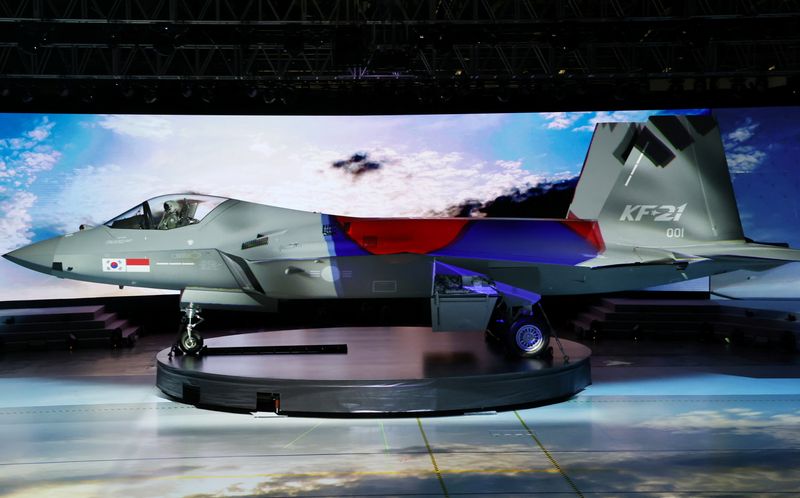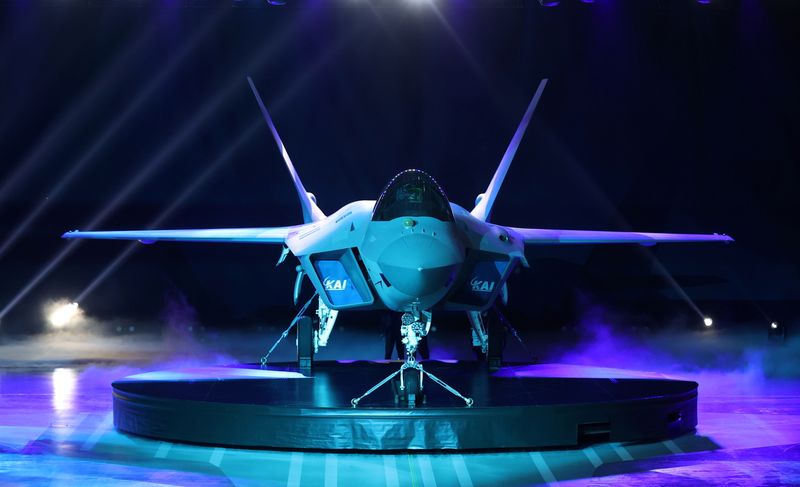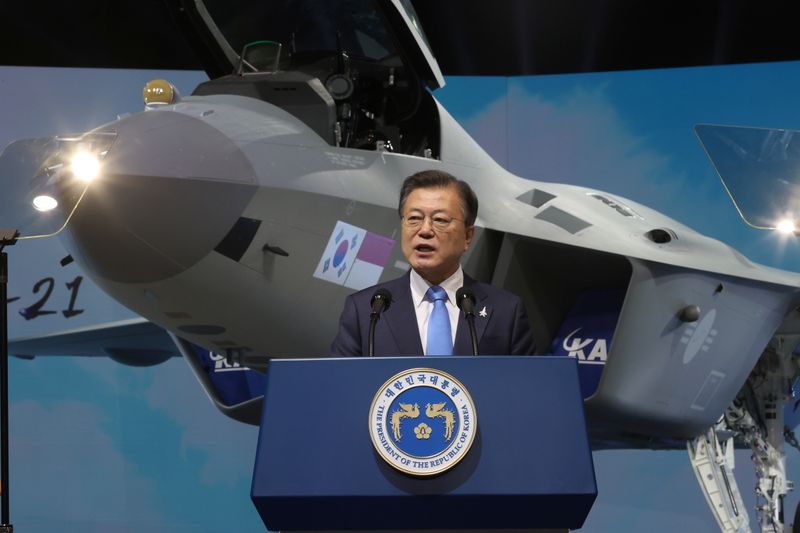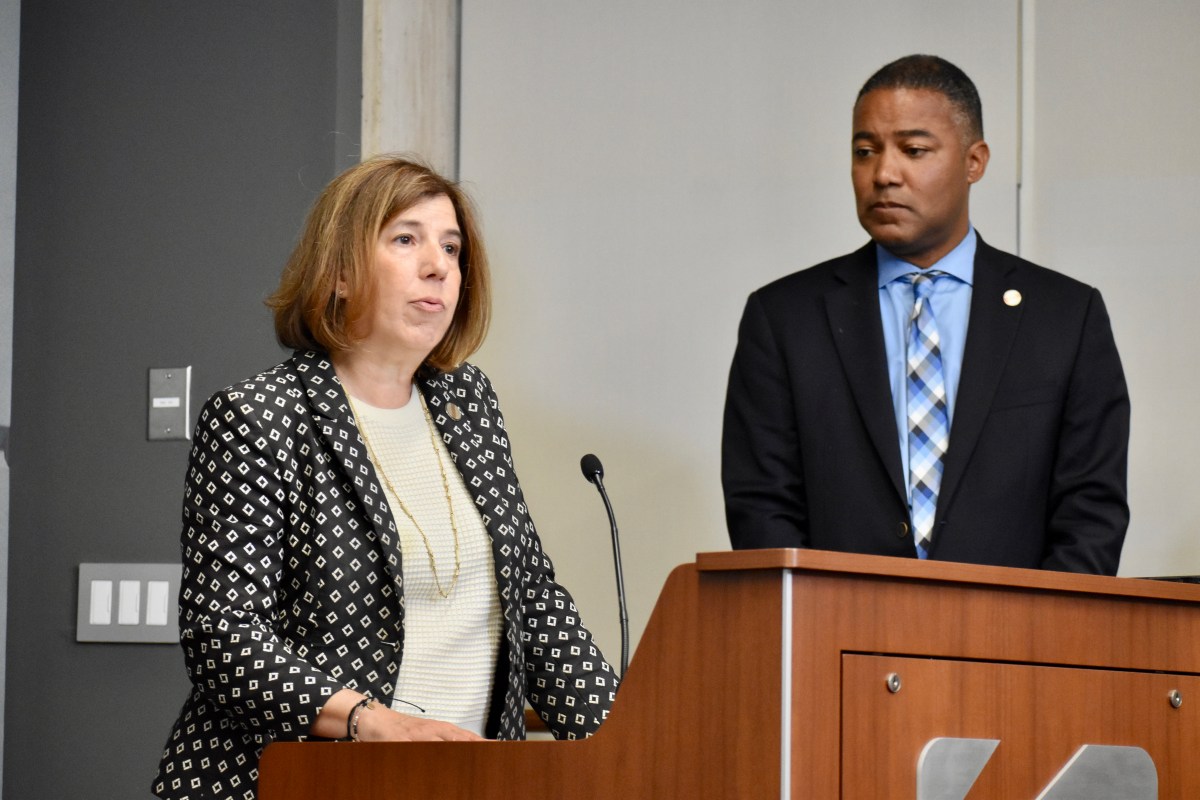SEOUL (Reuters) – South Korea unveiled a prototype of its first domestically developed fighter jet on Friday and President Moon Jae-in hailed the KF-X as the future backbone of the air force and a step toward the U.S. ally’s greater military independence.
The next-generation aircraft developed by Korea Aerospace Industries Ltd (KAI) is designed to be a cheaper, less-stealthy alternative to the U.S.-built F-35, on which South Korea relies.
The display at the KAI headquarters in the southern city of Sacheon was attended by Moon and representatives from Indonesia, which partnered with South Korea on the project.
“A new era of independent defence has begun,” Moon said, according to a transcript of his comments released by his office.
The advantages of having a domestically produced fighter could not be overstated, he added.
“Whenever we need it, we can make it.”
Moon has sought to boost the defence industry, both as a way to spur economic growth through exports, as well as to chart a more independent path in a country that has relied heavily on its major ally, the United States.
South Korea continues to buy large amounts of military hardware from the United States but under Moon the military announced its “acquisition policy will change to centre around domestic R&D rather than overseas purchases”.
KAI plans to carry out ground testing this year, with first flights expected in 2022. The plan is to eventually replace most of South Korea’s older, U.S.-made F-4 and F-5 fighter jets, and produce more for export.
Moon said South Korea would have at least 40 of the new jets combat-ready by 2028, and 120 by 2032.
When deployed by the South Korean military, the aircraft will be known as the KF-21 Boramae.
South Korea and Indonesia agreed in 2014 to jointly develop the fighter in a project worth 7.5 trillion won ($6.3 billion), with Indonesia paying 20% of the cost. But in 2018, Jakarta sought to renegotiate to take pressure off its foreign reserves, later seeking to barter for its share of the cost.
Indonesian Defence Minister Prabowo Subianto discussed the issue with Foreign Minister Chung Eui-yong during a visit to Seoul, with both sides agreeing to hold high-level talks about security cooperation, South Korea’s foreign ministry said in a statement, without elaborating on the cost dispute.
Indonesia’s Defence Ministry did not mention the project or funding but noted in a statement that the two countries had agreed to deepen cooperation, including in the defence industry.
(Reporting by Josh Smith; Editing by William Mallard, Robert Birsel)



























